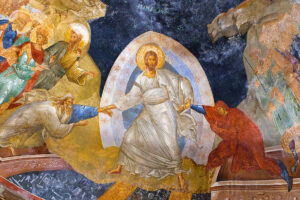Today’s Zaman newspaper recently reported on ‘Will the Halki Theological School be opened?’ written by lawyer, human rights defender and newspaper columnist Orhan Kemal Cengiz.
Orhan Kemal Cengiz was a speaker and panelist in the International Archon Religious Freedom Conference which took place mid-November 2010 in Brussels, Belgium. The conference theme was focused on “Religious Freedom: Turkey’s Bridge to the European Union.”
Today’s Zaman is one of two English-language dailies based in Turkey and reports on domestic and international coverage. The published article can be read in its entirety below.
Will the Halki Theological School be opened?
3/27/2012 by Orhan Kemal Cengiz
Read this article on the website of Today’s Zaman.
I divide Turkey’s minority policies in the republican period into two parts. The first part, which started in 1923 with the founding of the Turkish Republic, ended in 2002 when the current government came to power and a fait accompli strategy was vigorously applied.
This strategy aimed to rid Turkey of its remaining non-Muslims with different tactics, ranging from organizing pogroms for intimidation to constantly depriving minorities of their basic rights and legal protections. I have written many articles analyzing this strategy and the tactics that support it.
When the current government came to power in 2002, this fait accompli strategy was ended because, contrary to popular understanding of the subject both at home and abroad, it is not Turkish Muslims and conservatives, but nationalist/secular elites who have serious problems with non-Muslims, for historical reasons dating back to the massacres of non-Muslims by the Committee of Union and Progress (CUP) in the late Ottoman era.
However, no one is totally immune from the nationalist virus in Turkey, including devout Muslims. This Justice and Development Party (AKP) government has ended its fait accompli period. Instead it has introduced what I call the “but rights” period, in which they give some rights, but they all have some limitations. For example, non-Muslims are allowed to use their historical churches but this permission is given for only one day a year. The government has restored some churches but they have never returned them to their owners. They continue interfering with the elections of the religious leaders of non-Muslims, and so on.
And as you all know, the Halki Theological school, which was shut down in 1971, is still closed. From the very first days the AKP came to power, they kept saying that they would reopen the school. And we learned that Prime Minister Recep Tayyip Erdoğan confirmed to US president Barack Obama that his government would reopen the school soon.
However, as soon as we heard this “hopeful” statement, we also heard another “but” immediately after Erdoğan’s promise to Obama. And this time the “but” came from our chief negotiator, Egemen Bağış, to the EU. He said:
“The matter between Turkey and the US is subject to our internal legislation. I don’t see the opening of seminary schools as a threat to Turkey. It will enrich Turkey. On this topic I believe that it will always be useful for supporters to synchronize their steps at the right time … But while taking these steps, even if they are tied to reciprocal needs, we have emphasized that Greece’s good-intentioned attempts to synchronize are very important. In this environment the Greek Prime Minister’s oft-made promises to oust the honorable prime minister, and the fact that both the honorable [Georgios] Papandreu and the honorable [Constantine] Karamanlis have not taken the necessary steps, should be understood as the reason that negotiations are stuck. Turkey took very important steps related to this matter. I think it is time for Greece, which EU standards require to be democratic, to take responsibility for its behavior.”
They will open the Halki School if Greece opens a mosque in Athens. Bağış and some others believe that they could open the school so long as Greece confirms there will be reciprocity. Someone should explain to Bağış that there is no such thing as reciprocity in the field of human rights and the freedom of religion. Reciprocity is a totally alien concept to human rights.
It is quite unfortunate that Erdoğan’s promising remarks were just followed by a huge “but” from Bağış. I understand from this “but” that the government will not take this simple step of reopening the Halki school in the near future and they will continue dragging their feet.
This is the role the Turkish government is playing. When I look at the part the Patriarchate is playing, I see an ill-conceived plan for reopening the school. They will only accept the school’s re-opening with its pre-1971 status and they refuse to look at other options such as re-opening the school as part of a foundation. The other thing is that the Patriarchate has spent so much valuable time for nothing. They could have obtained a judgment from the European Court of Human Rights ages ago, declaring that keeping a seminary closed is a serious breach of the freedom of religion and it should be reopened. But they never pursued this type of legal action.
So it seems to me that we need more time to end this “but” period and move into a “full rights” period.






